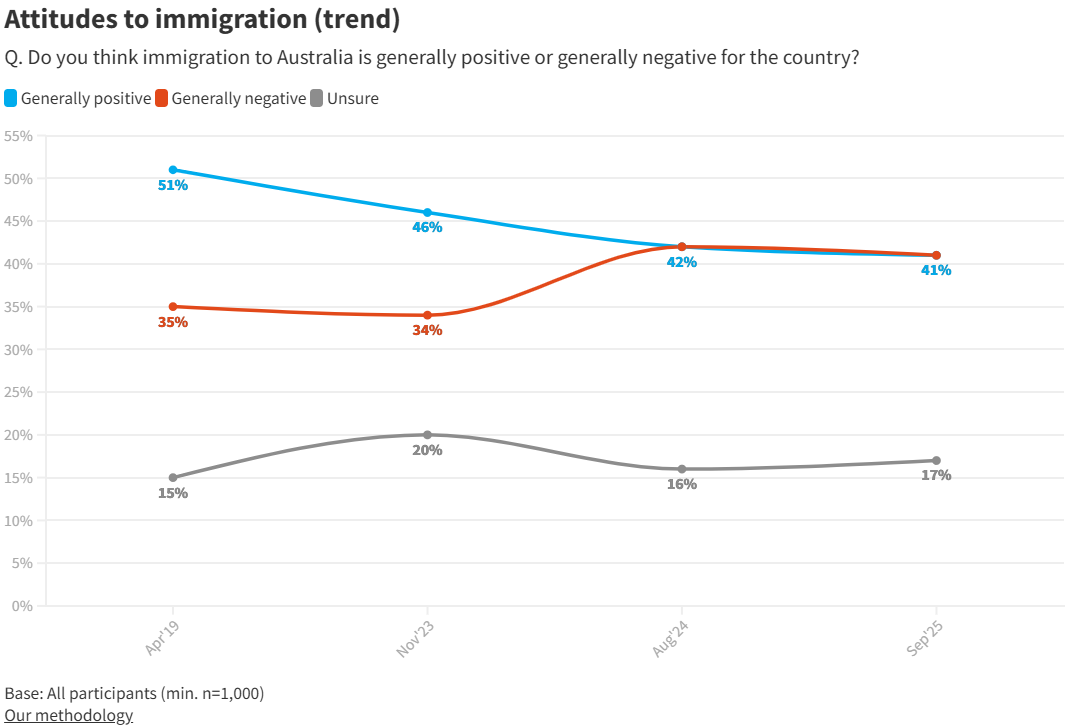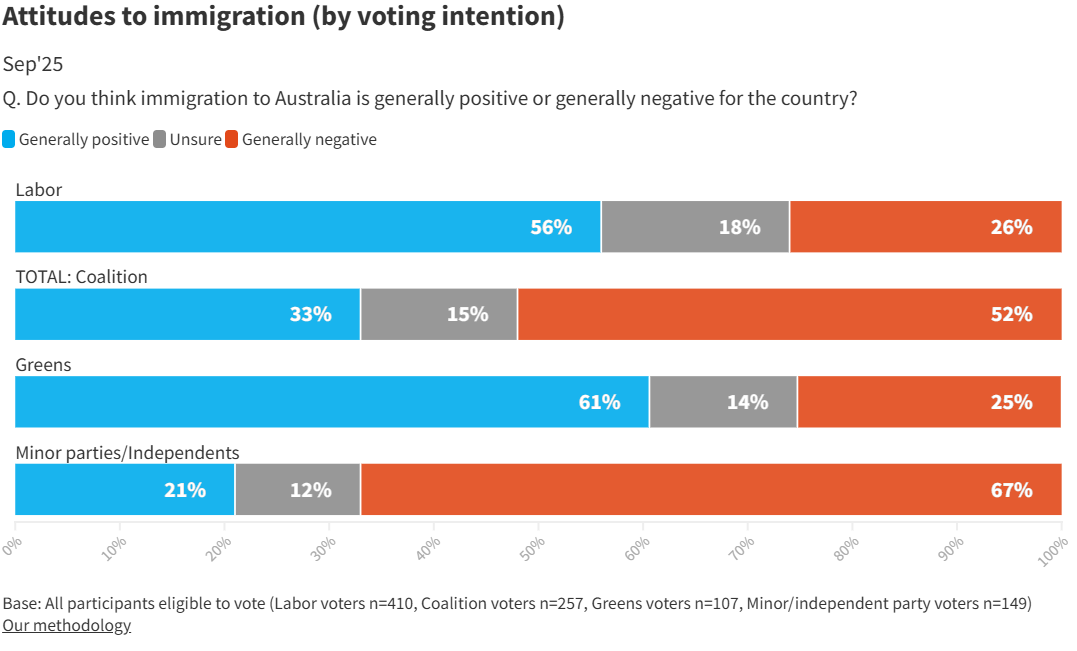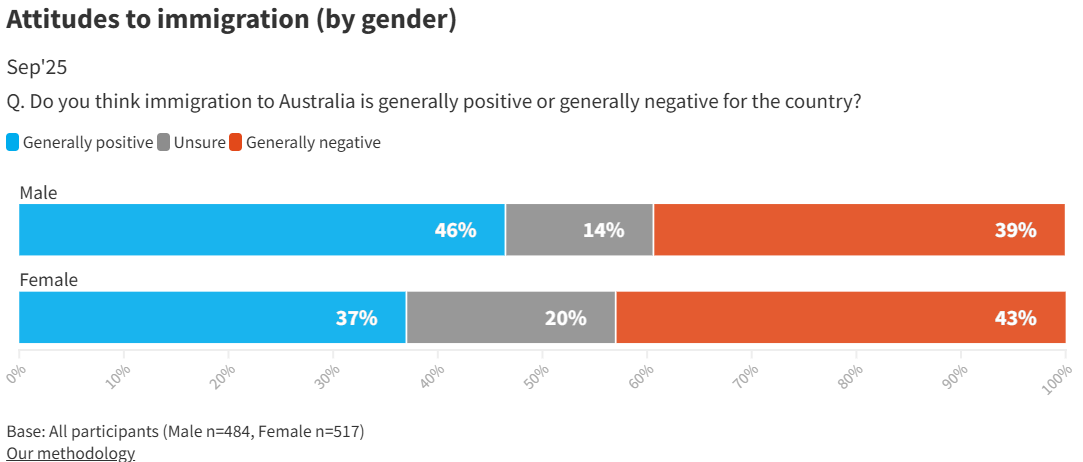While the level of migration remains a hotly contested issue, from the nation’s halls of power to backyard BBQ debates, for the longest time, migration conceptually was considered a positive by a majority of the public.
But recently, the public’s attitude on the issue has begun to shift significantly.
According to polling from Essential from earlier this month, just 41% of Australians now say that migration is “generally positive” for the country, with 41% saying that migration is “generally negative”.
This compares to 51% saying it was generally positive in April 2019, with 35% saying it was generally negative.

Source: Essential Report
While it’s interesting to have trends in the public’s perception of migration illustrated in such a clear and concise way, the granular breakdown of which type of people held which opinion proved to be particularly fascinating.
First off, the percentage of Labor voters in the sample is higher than in the actual electorate.
Of the 1,001 total respondents, 923 provided their voting allegiance, with 410 Labor voters, 257 Coalition voters, 107 Greens voters, and 149 minor party or independent voters.
This equates to 41% of total respondents being Labor voters or 44.4% of those with a stated voting allegiance. This compares with Labor voters accounting for an average of 35% of the primary vote in polling conducted entirely during September.
Since Labor voters have a significantly more positive attitude toward migration compared to Coalition voters and minor parties or independents (who are underrepresented versus recent polls), this may skew the overall results, making attitudes toward migration appear more favorable than they would be if the sample accurately represented the political divide within the electorate.
But to be completely fair to Essential, they don’t claim that the poll is structured to be able to make that claim.

Source: Essential Report
But perhaps the biggest surprise was the attitudes of the nation’s women.
Just 37% of female respondents believe that migration is generally positive, with a net figure (positive minus negative) of -6 for women overall.
Meanwhile, 46% of men believe that migration is generally positive, with a net figure of +7 for males overall.

Source: Essential Report
The Takeaway
There is a fairly commonly held viewpoint that a stronger stance on migration levels can be political Kryptonite, particularly with women voters, who generally favour the left fairly significantly.
Yet this result calls that into question from an Australian perspective, echoing the findings of pollsters overseas.
According to a recent Ipsos poll in Britain, the Reform party holds 31% of the female vote versus Labour with 23%.
If it’s broken down into left versus right, Reform and the Conservatives combined hold 47% of the female vote, compared with 34% for Labour and the Greens.
This is a rather striking result given that Nigel Farage is hardly a great orator or a policymaking genius. He is effectively the U.K. equivalent of Donald Trump, to paraphrase American author Michael Moore ‘A human Molotov cocktail’ that can be lobbed at the political establishment that is no longer serving the needs of everyday Britons.
Ultimately, migration need not be political Kryptonite for a leader willing and able to handle it deftly. But equally, the emerging reality overseas is that if things get challenging enough, even a Nigel Farage may emerge as someone seen as the better choice to handle the issue.

